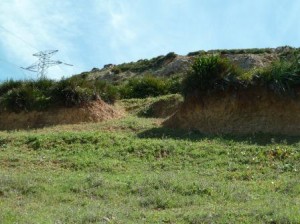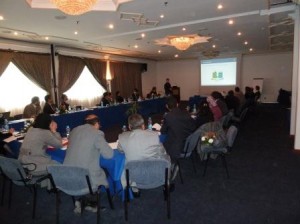During 21-25 March, FutureWater was in Fez for a workshop of Green Water Credits (GWC) in the Sebou River basin, Morocco. Green Water Credits is a mechanism for payments to land users in return for specified soil and water management activities that determine the water supply to stakeholders in the basin. Green Water Credits can be seen as an investment mechanism for upstream farmers to practice soil and water management activities that generate benefits for downstream water users, which are currently unrecognized and unrewarded. This initiative is driven by economic, environmental and social benefits.

The implementation of GWC has the potential of enhancing overall water management by reducing damaging runoff, increase groundwater recharge, simulate a more reliable flow regime, and reduce harmful sedimentation of reservoirs.
During the workshop in Fez, FutureWater presented together with ISRIC the prelimenary results of the Proof-of-Concepts of GWC in the Sebou River basin, Morocco. The largest issues in the Sebou basin are floods, droughts, erosion and the siltation of reservoirs, food and water security, and public health. One management practice analyzed, vegetative contour strips, showed that surface runoff and sediment inflow can be reduced significantly. Also groundwater recharge can be increased if vegetative contour strips are implemented.

The stakeholders really showed their interest during the workshop. Their support is necessary for the second and third phase of this study. On 24 and 25 March FutureWater organised a course of WEAP modelling. About twelve people participated in this course wherein the basics of WEAP were introduced, and a simplified model was setup for the Sebou basin.
